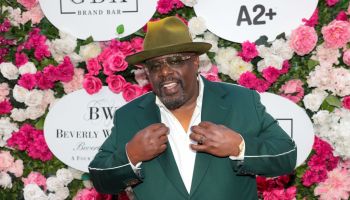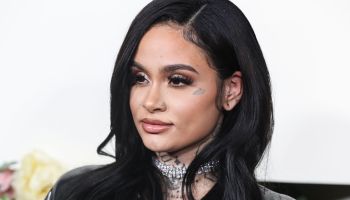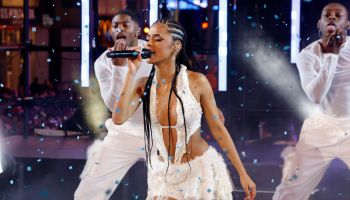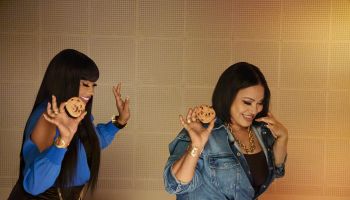Whether you want to believe it or not, Twitter has been one of the most effective ways to disseminate information and magnify activism online.
And no community has been more efficient in passing information and highlighting movements like the enigma that is Black Twitter. Twitter users who identify as members of Black Twitter have ultimately pushed for George Zimmerman’s arrest, brought many injustices to light, called for the termination of people who probably don’t deserve to be in certain positions, and yes…live tweeted the sh*t out of Shonda Rhimes’ Scandal.
On Wednesday, the online community learned that the University of Southern California was trying to harness the power of Black Twitter in the form of a study headed by three white males.
From the Data Science at the Annenberg Innovation Lab’s (DSAIL) website:
DSAIL is currently developing a multi-method approach to studying public discourse on Twitter that explores both macro and micro-scale activity simultaneously in order to draw out particularly active, engaged “neighborhoods” within the larger population. Among the many different ways that audiences incorporate Twitter into their media ecologies, “live-tweeting” is one of the most promising for researchers. “Live-tweeting” refers to an open-ended discussion among casual viewers, producers, critics, fans, and anti-fans alike that unfolds in response to television programming, in connection with real-time viewing. From sports events to awards shows to original content, this sort of real-time activity offers a unique opportunity for researchers to listen in on live commentary from thousands of viewers at once.
In pursuit of a generalizable set of best practices for audience research on social media, DSAIL is working toward an understanding of highly active sub-community of Twitter users often self-identified as “Black Twitter.” This case study turns on a tricky classification problem: not everyone who identifies as black is a part of Black Twitter, nor does everyone participating in Black Twitter identify as black. In spite of this ambiguity, coverage of Black Twitter in the popular and trade press has exploded during the last year. The community is credited with mobilizing attention around a variety of news and entertainment events, including attracting millions of new viewers to the network drama Scandal and drawing national news coverage to the killing of Trayvon Martin. The data we are collecting will allow us to map specific user connections, explore how information is spread and by whom, and identify the types of communication practices that are unique to Black Twitter. As part of this research, we are engaged in highlighting and evaluating both the immediate and long-term social implications of these online interactions.
It continues:
The dynamism of Black Twitter presents a methodological challenge because it defies the conventional keyword-based approach that researchers rely on to track communities of interest on social media. Unlike similarly open-ended groups who identify themselves using a shared hashtag (e.g., #tcot, or “top conservatives on Twitter”), the tweets by those users that make up Black Twitter tend to exhibit more complex rhetorical strategies – such as references to black culture or ways of calling out similarly-identified users – that evade simple mechanical classification. The terminology and humor of Black Twitter evolves rapidly over time, complicating any effort to generate a definitive list of key terms or phrases.
In order to observe the unpredictable flow of Black Twitter activity, we turn instead to a structured set of events around which a significant percentage of the Black Twitter community has gathered. Our case study focuses on the popular television show, Scandal (of which the protagonist is notable actress, Kerry Washington). From October 3 to December 12, 2013, we tracked the activity of any user tweeting about Scandal, and logged their Twitter conversations and user metadata. With this collection as a starting point, we have begun to map out the relationships among users who “live-tweet” Scandal in an effort to identify sub-groups of users that interact with one another outside of their shared interest in the TV show. From there, we hope to identify particular cliques of individuals that identify as part of Black Twitter to further explore their engagement with the show and each other on Twitter as well as their offline participation more generally in black culture and politics.
Just like that, the many feats of Black Twitter were dwindled down to a couple of jokes, memes, and hashtags. Did we mention that the study was run by three white males?
That proved problematic for Black Twitter, who quickly utilized 140 characters to broadcast their sentiments. While it’s known that Black Twitter is made up of more than just black people, many believed that the research doesn’t embody the diversity and understanding that Black Twitter actually possesses. Soon after, #BlackTwitterStudyResults began trending and made a mockery of the study.
Even BET got in on the joke:
#blacktwitterstudyresults: people still like #CollegeHill .. that’s why we are re-airing it. MIDNIGHTS. pic.twitter.com/pyvktGuK4h
— BET (@BET) September 3, 2014
Lacking the ability to multitask, Black twitter often forgets about Black on Black crime #BlackTwitterStudyResults
— Desus (@desusnice) September 3, 2014
If one catches fade then they also may be the victim of shade throwing? Something about edges. Still deciphering. #BlackTwitterStudyResults
— Elon James White (@elonjames) September 3, 2014
#blacktwitterstudyresults Felicia is clearly disliked as everyone wants her to leave #ByeFelicia
— IntRHO_DEUCE Me (@Wellspokentoken) September 3, 2014
This reads like a study of the covert communication among slaves. pic.twitter.com/Z5LY5r7mr6
— The Kitchenista (@MissAngelaDavis) September 3, 2014
A short time later, the site’s project attribution section went from this:
To this:
In what many believe was an attempt to stave off criticism, an African-American named Dayna Chatman, who was identified as the project owner of the study, was added to the landscape of white faces.
She shared the true meaning behind the study involving Black Twitter and her role in it:
I want to voice my frustration with how the research is inaccurately represented online. I will say more about my role in the project.
— Dayna Chatman (@FuturePhDdaynaC) September 3, 2014
I feel it is worthy to archive and understand the voice of Black people. Period. I feel strongly that it’s not done enough in Communication.
— Dayna Chatman (@FuturePhDdaynaC) September 3, 2014
I am currently in the process of writing about our findings and hope that it will be well received within and outside of academia.
— Dayna Chatman (@FuturePhDdaynaC) September 3, 2014
I pitched this project as part of my dissertation which looks about how Black women are represented on television and how viewers respond.
— Dayna Chatman (@FuturePhDdaynaC) September 3, 2014
Kevin Driscoll, who is listed as a member of the project team, came to the study’s defense.
I work on this project because Black Twitter matters. Many people within my academic field and in the media/tech industries do not agree.
— Kevin Driscoll (@kevindriscoll) September 3, 2014
I am so sorry that our work was presented in this way. @FuturePhDdaynaC has always been 1st author and this began as her idea.
— Kevin Driscoll (@kevindriscoll) September 3, 2014
The study is still receiving its share of criticism and understandably so — the research will most likely not support or enhance a community of users who share their intellectual property with others like them. The study, which isn’t the first of its kind, has also somewhat reduced Black Twitter users to Black people who tweet about television shows and Beyonce.
The truth is, there is more to Black Twitter than many, even these researchers, would like to admit. And the fact that Chatman was initially absent from the project is very curious indeed.
It for sure isn’t helping USC’s cause. And USC’s study, in many Twitter users’ opinions, is not here to help Black Twitter.
SOURCE: USC Anneberg Lab | PHOTO CREDIT: GETTY

















